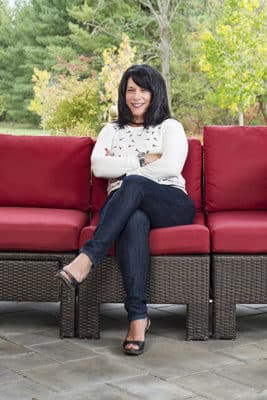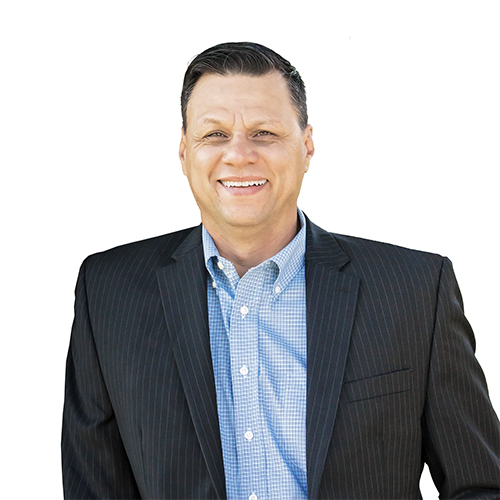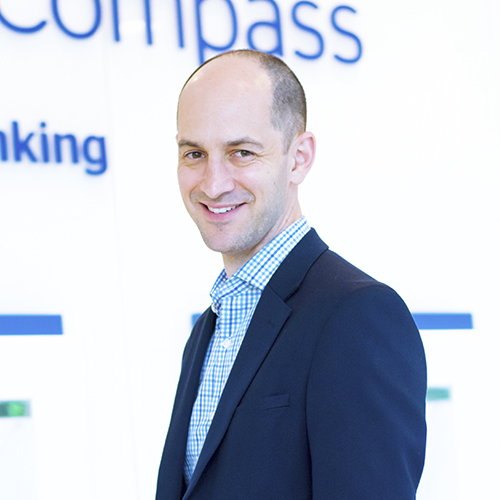
At Myshel Guillory’s high school, students were not expected to go to college. They were expected to become secretaries, phone representatives, or mechanics. But then, Guillory took an accounting class offered by her high school.
“I was blown away by how numbers made sense and how numbers brought a story to life,” she says. After that class, Guillory knew she had to be an accountant and ultimately a chief financial officer. That was the dream job, the highest level in the accounting chain.
Numbers were Guillory’s logical way of dealing with life. She grew up in La Puente, a suburb of Los Angeles that has close ties to Mexican gangs. She was bullied regularly in school, and her home life was not any better.
In her teens, she finally decided to leave home, and after living on the streets of Compton, she reached out to her grandparents. “I didn’t want to become a statistic, repeating a vicious, abusive cycle,” she explains. Guillory moved in with her grandparents, graduated high school, and enrolled in college full-time. “My grandparents constantly, no matter what I did, no matter how many mistakes I made, were always there for me.” Guillory knew she wanted to do something different, and she had to be something different. Accounting was her journey to that something.
Today, Guillory is the chief financial officer and treasurer at Nodal Exchange, which provides price, credit, and liquidity risk management solutions in North American energy markets. Hispanic Executive spoke with Guillory about achieving her dream of being a CFO and her journey to get there.
What were some of your biggest challenges those initial years, once you graduated from college?
Maintaining a family and a career at the same time. When I was in my last year of college, I received a job offer from KPMG. By this time, I had two children, a four-year-old and a two-year-old. Working at KPMG, in public accounting, many times required me to work extremely long hours. Getting to parent orientations, school conferences, and doctor appointments while juggling working sometimes up to sixteen to seventeen hours a day felt next to impossible. My mother-in-law at the time was instrumental in helping me bring it all together. She would drive the kids to the event, and I could drive and meet her there, attend the event and then get back to work while she took the children home and cared for them. Without her help, I could not have successfully juggled those challenges. I would have lost my mind.
You’ve been at Nodal Exchange for nine years. Why have you stayed?
Everything about Nodal Exchange from the very beginning until now has always been exciting. I believe in everything we have done, and I have constantly felt over these past nine years that what I do, and what my team does, matters. Employees are one big team, and it’s the employees that have made Nodal Exchange successful.
Since we’ve launched Nodal Exchange in 2009, our executive team has remained unchanged. I believe we all truly respect each other and what that person brings to the company. We have a strong executive presence. From the very beginning, every one of us has rolled up our sleeves and has done whatever was needed to ensure our success. Nodal Exchange is a very dynamic company. Every day we are all learning. This constant learning and change makes it fun, new, and exciting all the time.
What were some of your challenges?
I believe there have been three points in my life with significant challenges, and I was able to overcome with the love and support of my grandparents and my aunt. The first was running away from home prior to graduating from high school. The second was working full time, raising two small children, and going to college at night while trying to maintain an exceptionally high GPA. The third and final challenge was simultaneously getting a divorce, losing everything, an imminent lay-off, and having three children, with the youngest being three years old.
Nodal Exchange presented a new, exciting, and perfect opportunity for me to have a fresh start and new beginning. I took the chance, moved from Dallas, Texas, to Northern Virginia with less than $1,000 in my bank account as a single mom and with a new purpose and vision for the future.
I cannot stress enough, not only to my family but also to my team, that we have to always think outside of that box. I have a problem with the statement, “no, we cannot do that,” or “no, it is not possible.” I guess it may seem to those around me that I just have a problem with people telling me no. Maybe that stems from my background, because I will not accept doors closing in my face and I will not accept a blanket statement that something cannot be done. I say on a regular basis, “We are all smart people. If we put our minds together, we can figure something out. We can figure out a way, and I have faith in you.”
Tell me about your leadership style. How do you get your team to believe in your vision?
People need to feel like they are a part of the ultimate journey. They need to envision themselves and envision how they can play a role in that journey. I do not manage my team necessarily based on a restricted job description. While I realize at times that can be frustrating to my employees, I rally them by explaining where we need to be. This is usually a very high-level explanation of an expected output. Usually this initiates questions on a detailed level of the path they feel we need to take to get there. This is where you get your team to see themselves on the path to your vision of the ultimate journey. Their background and experiences, especially in a team format, leads to a cooperative path towards our end goal. When your team feels valuable, their opinion respected, they will want to personally succeed, which in turn makes everyone successful. This smooth integration enables an efficiency like no other.
How did your role with the exchange evolve over the years?
I was hired as a hands-on controller; there was no CFO at the time. Thus my goal was to grow and learn so that I could become the CFO. I needed to become stronger, learn more than just accounting, learn the business, learn about how an “exchange” and ultimately a clearinghouse operated. It’s hard to come out of your comfort zone to take chances. But I was able to do just that and was promoted to CFO and treasurer after so much hard work personally and professionally.
In 2014, Nodal Exchange decided to launch a clearinghouse. My team and I had one year to learn everything about a clearinghouse. We were determined to not go with the flow, but to ask questions and not do something because everyone did it. We were going to learn the industry norm and we were going to make it better. We were going to use common sense, ask why over and over again until we understood the reason for a process. It was exciting for everyone at Nodal Exchange; we all worked hard together for a year and launched Nodal Clear true to our word that it would happen.
I say all of this to explain that as the years have passed, my role has continued to evolve and not just in a title. In a team-based approach, I am not just the CFO and treasurer. I am a mentor, I am a friend, sometimes I am even the person that does a common bank reconciliation. I feel I am whatever I need to be to ensure our team continues to run as smoothly and efficiently as possible.

